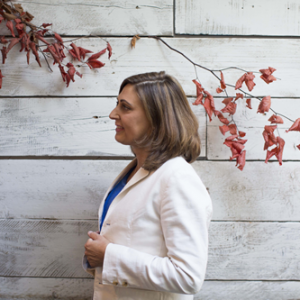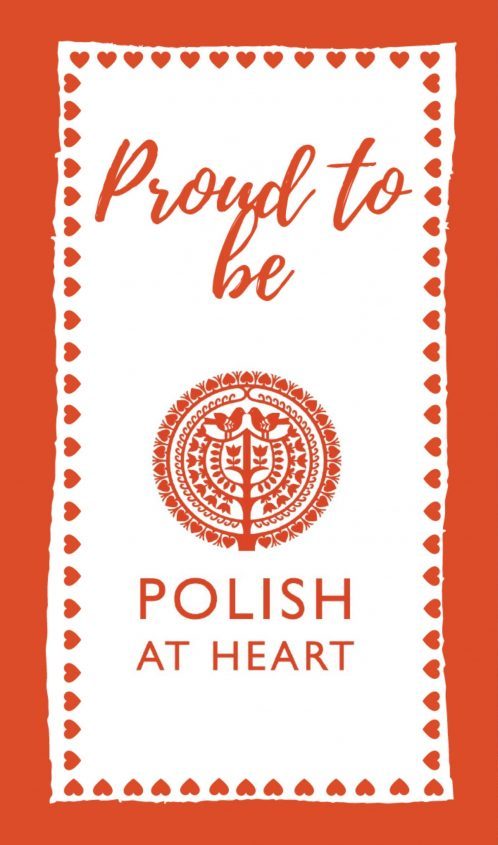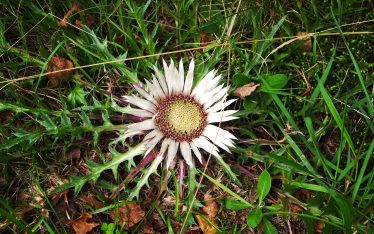The twelve dishes of Wigilia are a wonderful mix of savoury and sweet delights some with a hint of spice. So here are twelve books variously seasoned to keep you up for the twelve nights of Christmas. Some are fiction, many are about places in the past or history we’d like to know more about. The selection is from English and Polish authors, the latter painstakingly translated by talented people who are often overlooked for their work in ensuring novelists are better known throughout the world.
Things I didn’t throw out – Marcin Wicha

Lamps, penknives, paperbacks, mechanical pencils, inflatable headrests. Seemingly everyday ‘things in our lives’ this often comic book is part autobiographical but also a study on bereavement through objects. Written by a graphic designer and children’s author Marcin Wicha, his 2017 book received more than one literary award and this translation in 2022 by Marta Dziurosz has won a translation award. The style hits the heart and every word is vital in this treatise on the stuff we accumulate in our lives and what significance they take on when someone dies. “….the impossible human effort to end up with an adequate inventory of what was lost.” Hisham Matar
Warsaw Tales – translated by Antonia Lloyd-Jones

This anthology of short stories published in 2024, is from a selection of Polish writers and set in Warsaw. Selected and translated by Antonia Lloyd-Jones, it is edited by Helen Constantine. The book covers various periods of Warsaw’s past – glittering, in ruins and the phoenix it has become. In the words of writers from turn of the century Bolesław Prus to the more contemporary Olga Tokarczuk you visit different districts of Warsaw getting a feel for this ever evolving capital city. Antonia is best known as the translator of award winning writer Olga Tokarczuk including Drive Your Plow Over the Bones of the Dead which was shortlisted for the International Booker Prize in 2019.
Between East and West – Anne Applebaum

This is an old favourite of mine (originally published in 1994) and in which I first read about people’s sense of belonging “being from here” without any relation to ethnic group, country or political class ruling the region. It covers Anne’s travels in Eastern Europe in the early 1990’s shortly after the break up of Soviet Russia. Often bleak, it also shines a torch on people’s lived experiences. “In this superb book, in which one senses the spirit of Franz Kafka and Bruno Schulz, the dramatic world of the Eastern borderlands comes to life” Ryszard Kapuscinski
The birds they sang – Stanisław Łubieński

This week I read an article on a study by Natalia Zielonka why birdsong matters. As our natural soundscapes are falling silent, we too are losing our connection with nature. Translated by Bill Johnston, this non-fiction book is by ornithologist and writer Stanisław Łubienski, who first looked at the world through Soviet binoculars. In 12 separate essays he takes us from POW camps to James Bond to Hitchcock’s birds. The original version is called “Dwanaście srok za ogon” – 12 magpies mean riches and the phrase means to multitask. He has also written a book about what happens to various bits of rubbish (2020) translated two years later by Zosia Krasodomska-Jones – What we leave behind – another great read.
Mrs Mohr goes Missing – Maryla Szymiczkowa

A turn of the century whodunnit based in Kraków, translated by Antonia Lloyd-Jones. Maryla Szymiczkowa is a pseudonym for Jacek Dehnel and Piotr Tarczyński who worked together for the first time on this mystery. The protagonist Zofia Turbotynska is a professor’s wife and bored housewife in late 19th century Kraków. She has the usual social events to organise but finds her calling as a detective when she is confronted with a mysterious death during these activities. It is an Agatha Christie inspired read. Another novel in this series is Karolina or the Torn Curtain.
On the Niemen – Eliza Orzeszkowa

The Niemen river which once flowed through Poland, now starts in Belarus and flows through Lithuania. To me this sums up the Polish spirit of lost lands. Written in 1888, it tackles relations between the impoverished nobility and peasants in the shadow of the January Uprising of 1863. Translated by Michelle Gramas, some people feel it has too many descriptions of nature and the weather but this gives it atmosphere and underpinning this is a book about the importance of land, women’s emancipation, social problems and human relationships. In 1905 Orzeszkowska was a finalist for the Nobel Prize for Literature alongside Leo Tolstoy but it went to Henryk Sienkiewicz instead. But that fact give you an indication of its quality.
Agent Zo – Clare Mulley

The untold story of fearless WW2 resistance fighter Elżbieta Zawadzka is so gripping you feel at the centre of the action on every page. Written about the only female member of the Cichociemni, the Polish elite Special Forces known in English as the Silent Unseen it is painstakingly researched. Not only that, Clare has uncovered a whole underground network of women acting throughout the war against Nazi Germany. “Agent Zo is a triumph. The deftly told life of this remarkable heroine helps restore women to their rightful place in the record of Second World War literature. Essential reading” Hallie Rubenhold
The Peasants – Władysław Rejmont

Recently of movie fame (now on some streaming services) by the producers of Loving Vincent, The Peasants was written in 1904 by Nobel winning author Władysław Rejmont and this latest translation by Anna Zaranko is superb. It’s a pretty thick book and full of exceptionally beautiful descriptions of dawn or the wind but also the gritty scandals, romances and drama of village life in Poland. The customs, behaviour and spiritual culture of the people is set out across four seasons. The translator has managed to convey this masterpiece in a perfect way, by translating Polish countryside ways of speaking into broad English dialects.
The Lost Pianos of Siberia – Sophy Roberts

A non-fiction travelogue which tracks down lost pianos and their players in remote places like Irkutsk, Kamchatka and Kolyma. This book was nominated the Sunday Times book of 2020. Through her finds, Sophy Roberts tells many stories of Russian history. Sophy writes that “Each piano sings differently because of the people who used to play it and polish its wooden case.” Pianos are known to have been popularised by the middle classes throughout Europe. The piano’s unique character of wood and strings needs a warm and humid temperature which doesn’t equate with Siberia. “The Lost Pianos of Siberia is as much elegy as detective story.” The Guardian
The Book of Bees – Piotr Socha

Piotr Socha’s book is a larger format and consists of 30 illustrated spreads, inviting the reader into the world of bees. We find out how a honeycomb is made, what a beekeeper’s job consists of and what different honey types taste like. Piotr Socha’s book was inspired by his family story and childhood memories – the author’s father was a beekeeper. Aside from books for children, Socha makes board games and audiobooks. This book was awarded a prize for best scientific book in Vienna in the children’s category. Age 7 +
Maps -Aleksandra Mizielińska – Daniel Mizieliński

Husband and wife graphic artists have received numerous prizes for this over-sized book published in 2013. I’ve seen the delighted faces of children receiving it. A world best seller, it takes children on a tour of the world through 52 highly illustrated maps. Beyond the borders and geographical features, each page is a riot of iconic people, animals, plants, events, popular names and buildings. A great gift for a visual child and one to play searching games with. Age 4 – 10+
The Price of Victory: Memoir of the Commander of the 1st Polish Armoured Division – General Stanisław Maczek

This memoir of a soldier who enlisted in the Polish Army in 1918 and by 1939 was a major general, was published in 2024. Edited by historian Jenny Grant it captures the unique personality of Stanisław Maczek – a hard but fair disciplinarian loved by all his men. His determined leadership in Poland in September 1939 led to an escape into France then Britain with his men. Here as commander of the 1st Polish Armoured Division he continued the fight alongside the Allies with a key role in the liberation of Europe. Despite the terms of the Yalta Agreement meaning the Poles’ aim of liberating their own country was denied them, this is a book about victory against all odds.
Whether it’s a book for yourself or for a gift (which may be lent to you one day), I hope you find something you like in this seasonal list, though heavily weighted towards history and nature. Forgive me. With many thanks to Alexa Newsome for providing me a list of her bookclub which gave me some great reads. If you are a paper reader, please do support your local bookshop (most will order you in a book for the next day). If you can’t make it to one, order through Hive.co.uk or Bookshop.org and a percentage of the profits will go to the bookshop you nominate.
Happy Reading and Merry Christmas! Wesołych Świąt!


 1.Tracing Family History pre-WW2
1.Tracing Family History pre-WW2 2. Tracing Family History WW2
2. Tracing Family History WW2


